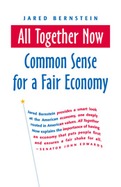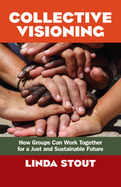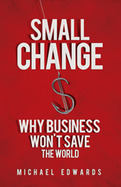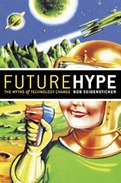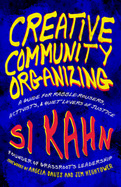2006
• Exposes the destructive consequences of the 'you're on your own" approach to dealing with pressing societal problems
• Shows how a more collaborative 'we're all in this together" strategy can better resolve these problems and ensure that risks and benefits are shared equitably
• Details specific alternatives to current policies in areas like globalization, health care, and employment
2011
-
Shows activists how to develop an inclusive, inspiring vision of the future they want to create
-
Offers a process that guarantees the voices of marginalized people are heard and enables people of all backgrounds to work together with honesty, passion, commitment, and joy
-
Filled with examples and exercises taken from Linda Stout's decades of organizing
All of us want a future that's promising and a way to get there. For decades, activists and community groups have worked to create equitable solutions. Why then are so many of us disappointed at the results?
Despite sincere and well-intentioned efforts, organizers often fall short in creating groups in which people from all backgrounds feel comfortable speaking up. And while progressives are good at articulating what they're against, for a variety of reasons they have a tougher time getting specific about what they're for--creating a positive, energizing vision.
Linda Stout, a lifelong agent of social justice, introduces a process designed to ensure that all voices are heard, an inspiring vision of the future is agreed on, and an action plan is developed that leverages everyone's diverse talents and abilities. Used successfully by over 120 organizations, it creates hope for change among those who've stopped believing change is possible.
Stout lays out the extensive and innovative prework that must be done to build trust and openness before any kind of meeting is held--a distinctive feature of collective visioning. She describes creative approaches for encouraging people to share their histories and most deeply held personal values, and she explains how understanding why each person is drawn to the work is vital in designing action strategies that build on people's particular strengths. She illustrates her points with inspiring stories of what collective vision can accomplish, drawn from her decades of committed activism.
Collective Visioning is a complete guide for leaders seeking to create inclusive movements that work from a place of hope to create a better, more just tomorrow.
2010
2006
- Convincingly debunks the myth that technology today is changing at an unprecedented rate and totally transforming modern society
- Gives readers the perspective to look skeptically at claims that every new technology is a world-changing breakthrough they must have
- Written by a twenty-five-year veteran of the high-tech industry who spent eight years as a Microsoft project manager
Si Kahn's impromptu song at BK Author Day Lunch Meeting
Gerald Davis argues this is a root cause of the income inequality and social instability we face today. Corporations were once an integral part of building the middle class. He points out that in their heyday they offered millions of people lifetime employment, a stable career path, health insurance, and retirement pensions. They were like small private welfare states.
The businesses that are replacing them will not fill the same role. For one thing, they employ far fewer people—the combined global workforces of Facebook, Yelp, Zynga, LinkedIn, Zillow, Tableau, Zulily, and Box are smaller than the number of people who lost their jobs when Circuit City was liquidated in 2009. And in the “sharing economy,” companies have no obligation to most of the people who work for them—at the end of 2014 Uber had over 160,000 “driver-partners” in the United States but recognized only about 2,000 people as actual employees.
Davis tracks the rise of the large American corporation and the economic, social, and technological developments that have led to its decline. The future could see either increasing economic polarization, as careers turn into jobs and jobs turn into tasks, or a more democratic economy built from the grass roots. It's up to us.


